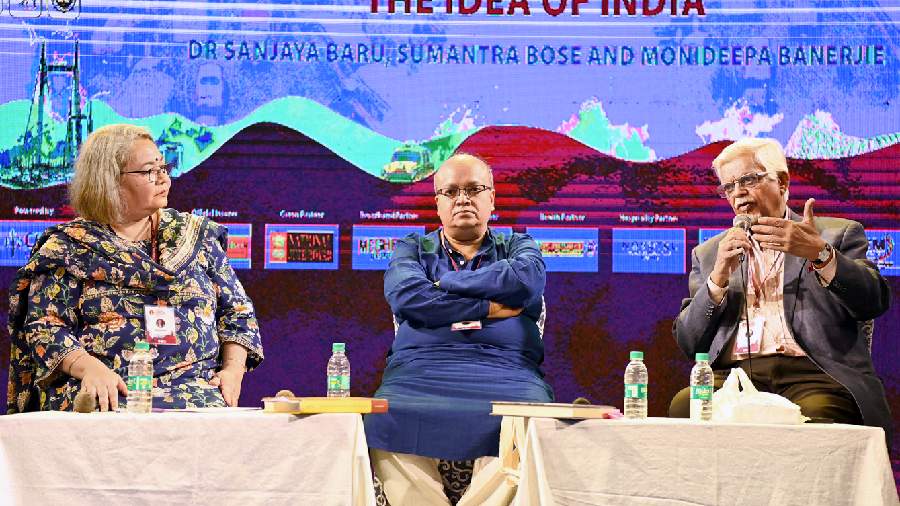India’s secularism is not borrowed from the West but is deeply embedded in the Indian tradition, a political scientist told a literary meet audience at the Kolkata Book Fair on Friday.
“It is a completely false claim that the Indian notion of secularism seeks to be imitative of the West. It is indigenously rooted, above all in the ethic of tolerance, equality and co-existence which has been part of our Indian tradition for hundreds, if not thousands, of years,” Sumantra Bose, professor of international and comparative politics at the London School of Economics, said during a panel discussion at the ninth edition of the Kolkata Literature Festival, held in association with The Telegraph.
“The everyday ethic of tolerance, mutual respect, equality of communities and co-existence, this is also a pragmatic necessity because in a very diverse and multi-religious society like ours, without this ethic being upheld by the State.... you cannot have a functioning state or a functioning society,” said Bose, grand-nephew of Netaji Subhas Chandra Bose.
His co-panellist in the session, titled “The Idea of India”, was Sanjaya Baru, a policy analyst who served as the media advisor to Manmohan Singh when he was Prime Minister and is best known for his book The Accidental Prime Minister.
The moderator, journalist Monideepa Banerjee, asked about secularism being part of the “spirit of India” long before it was included in the Constitution. That prompted Bose to talk at length on the subject.
To buttress his point, Bose cited the example of two sessions of the Indian National Congress, one held in Kolkata in 1928 and the other in Karachi, three years later.
In Kolkata, a was set up to formulate the fundamental principles of the Constitution of free India. As Congress president, Motilal Nehru chaired this committee of eight members and Subhas Chandra Bose was one of the members.
“One of the injunctions was that the future free Republic of India shall have no state religion and will not... directly or indirectly indulge any religion, give any religion any preferential status.... This commitment was reiterated three years later during the Karachi session,” Bose said on Friday.
“Gandhi, Nehru and Netaji had their differences. For example, Nehru and Bose were very much on the same page when it came to their modernist view of economics. Gandhiji was not. He had a different worldview. But despite their differences, Gandhi, Nehru and Bose were part of the same camp; they converged on upholding this ethic of tolerance, mutual respect and equality as non-negotiable,” he said.
Banerjee cited Prime Minister Narendra Modi’s speech in Parliament a couple of days ago, where he called the UPA tenure a “lost decade” and asked for Baru’s reaction.
He said the Prime Minister was “factually incorrect”.
“The golden years of growth were 2003 to 2010. I call them the golden years in my latest book on the Indian economy because we had close to 9 per cent growth. The consequence of that was the sharpest decline in poverty, increase in employment, rise in foreign exchange reserves, increase in India’s share of world trade, all indicators showed an improvement,” said Baru.
“The problem begins after that partly because of the financial crisis of 2009… we had our own problems at home.... Between 2012 and 2018, we see growth slowing down. Then comes the pandemic, and we have not yet recovered. Nothing that has been done in the past three years has helped us go back. The average growth rate, whatever the official numbers may be, has been 3 per cent.
“Unless we see a dramatic improvement in one more year before the next elections, the overall decadal record of Prime Minister Modi, the average, would work out to be... not more than about 5 to 6 per cent as compared to the overall decadal average of Manmohan Singh, which despite the slowdown is 7.5 per cent,” he said.
